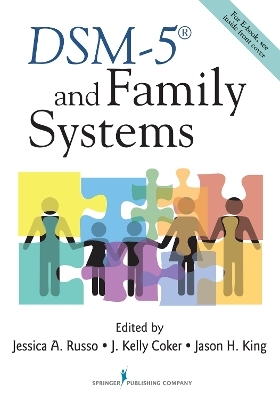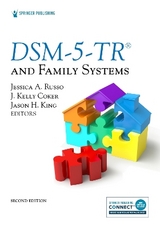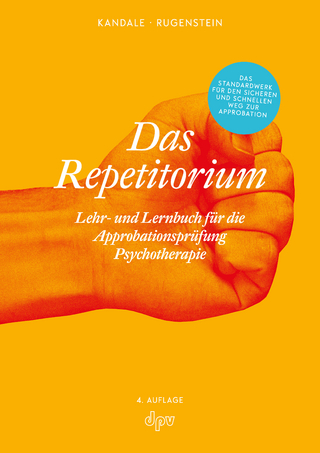
DSM-5® and Family Systems
Springer Publishing Co Inc (Verlag)
978-0-8261-8398-9 (ISBN)
- Titel erscheint in neuer Auflage
- Artikel merken
"Two of my mantras in training systemic clinicians are:'Systemic counselors and Marriage and Family Therapists should be the best diagnosticians of all the mental health disciplines but we do not always have to take that diagnosis into the therapy room to our clients.' and... 'Use the language of your audience.' The cognitive and vocal dissonance between the systemic understanding of human relational behaviors and the traditional medical model of viewing these same symptoms of pathology has long been a topic of academic debate and clinical coffeehouse arguments. This work is the first major text to attempt to create a two way bridge of introducing traditional users of the DSMs to systemic perspectives while informing systemic thinkers of the utilization of the traditional language for better outcomes for all of our clients/patients. Though no work can be exhaustive, this text uses the language of the DSM-5, explores systemic influences, and provides a case examples of the major divisions of the manual. I recommend this text in hopes that the bridge will continue to be used as our body of knowledge continues to grow." --Mike Bishop, PhD., LMFT-S, LPC-S; Associate Professor, Texas Wesleyan University; Former President, Texas Association for Marriage and Family Therapy
"This outstanding textbook addresses the needs of systemic oriented clinicians who work with couples and families to identify and assess disorders described in the fifth edition of the Diagnostic and Statistical Manual of Mental Disorders. It provides a much needed resource emphasizing the development of interventions from systemic frameworks. The book is characterized by chapters organized in a consistent manner that has great appeal to practitioners in a variety of settings: diagnosis and criteria, relational and cultural features, family systems assessments, family systems interventions, ethical/legal considerations, and case conceptualizations. I find the entire text to be timely and relevant but one of my favorite aspects of the book is the way each chapter concludes with a case study that applies the information to the work of a systemically oriented." clinician."--David Capuzzi, Ph.D, LPC, NCC; A Past President; American Counseling Association
The first text to present DSM-5 diagnoses within a relational perspective, DSM-5 and Family Systems delivers timely content aimed at training marriage and family therapists, clinical mental health counselors, and other systems-oriented practitioners. It reflects how the DSM-5 examines, for the first time, its diagnostic categories from the perspective of cultural and environmental impact on the development of individual disorders and conditions. This comprehensive text provides students with an understanding of how to approach a diagnosis as it relates to assessments, treatment planning, and ethical implications from a family and relational systems perspective.
With contributions from distinguished faculty at counseling and marriage and family therapy training programs, each chapter includes an overview of the DSM in family systems contexts, cultural aspects, family systems assessments and interventions, and ethical and legal implications. Abundant case vignettes aid students in conceptualizing diagnoses in each DSM-5 category.
Key Features:
Considers all categories of DSM-5 diagnoses from a family and relational systems perspective--the first book to do so
Includes family systems contexts, assessments, interventions, cultural considerations, and ethical and legal implications
Provides sample case vignettes for conceptualization of each DSM-5 category
Written and edited by esteemed educators in counseling and marriage and family therapy
Designed for courses in diagnosis, assessment, and psychopathology
Jessica A. Russo, PhD, LPCC-S, NCC, is a core faculty member of Walden University's College of Social and Behavioral Sciences. She is a licensed professional clinical counselor in Ohio, a licensed school counselor, and co-owner of a small private practice. J. Kelly Coker, PhD, LCMHC, QLS, is a professor at Palo Alto University and a Licensed Clinical Mental Health Counselor (LCMHC). Jason H. King, PhD, CMHC, NCC, ACS, is the Psychotherapy Practicum Director for the Psychiatry Concentration Track in the Doctor of Medical Science (DMSc) degree at Rocky Mountain University of Health Professions.
CONTENTS
Contributors
Foreword by Mark D. Stauffer, PhD, NCC
Preface
Acknowledgments
1. Systemic Levels in Neurodevelopmental Disorders
Lee A. Teufel-Prida and Juan A. Lopez Prida
2. Systems-Focused Therapy With Schizophrenia and Other Psychotic Disorders
Joel A. Lane
3. Relational Functioning: Understanding Bipolar and Related Disorders
Matthew R. Buckley and Stephanie K. Scott
4. Family Process in Depressive Disorders
Rosanne Nunnery and Jan Lemon
5. Applying Systems to Anxiety Disorders
Danielle A. Black
6. Systemic Functioning of Obsessive-Compulsive and Related Disorders
Kelly Dunbar Davison, Joelle P. France, and Candace M. McLain-Tait
7. Trauma- and Stressor-Related Disorders: Systemic Processes
Christie Jenkins, Annabelle Shestak, John Laux, and Jennifer Jancsin
8. Systems Applied to Dissociative Disorders
Kristen Eldredge and LoriAnn Stretch
9. Systemic Ecology in Understanding Somatic Symptom and Related Disorders
Torey Portrie-Bethke, Brooks Bastian Hanks, Nicole R. Hill, Holly H. Wagner, and Carrie Alexander-Albritton
10. Feeding and Eating Disorders: A Systemic Model
Margaret Clark Zappitello
11. Elimination Disorders: A Developmental Systems Perspective
Carol Pfeiffer Messmore, Alyssa Weiss Quittner, and Kaisha A. Thomas
12. Multisystemic Dimensions of Sleep–Wake Disorders
Rachel M. O’Neill and Brandy L. Gilea
13. Sexual Dysfunctions: A Relational Understanding
Anne S. Cabanilla and Roxanne Bamond
14. Gender Dysphoria and Systemic Meaning
Deb Coolhart and Brianna Mason
15. Disruptive, Impulse-Control, and Conduct Disorders: General Systemic Properties
Aaron Hugh Jackson
16. Family Systems and Substance-Related and Addictive Disorders
Amber Lange, Amanda Rovnak, Carrie VanMeter, and Trevon Clow
17. Neurocognitive Disorders: Systemic Functionality
Carol Podgorski
18. Personality Disorders and Systems
Marilyn Haight and Esther Benoit
19. Systems-Focused Therapy With Paraphilic Disorders
Katarzyna Peoples and Emily Meyer-Stewart
Index
| Erscheinungsdatum | 04.06.2017 |
|---|---|
| Verlagsort | New York |
| Sprache | englisch |
| Maße | 178 x 254 mm |
| Themenwelt | Geisteswissenschaften ► Psychologie ► Familien- / Systemische Therapie |
| Geisteswissenschaften ► Psychologie ► Persönlichkeitsstörungen | |
| Medizin / Pharmazie ► Medizinische Fachgebiete ► Psychiatrie / Psychotherapie | |
| ISBN-10 | 0-8261-8398-0 / 0826183980 |
| ISBN-13 | 978-0-8261-8398-9 / 9780826183989 |
| Zustand | Neuware |
| Informationen gemäß Produktsicherheitsverordnung (GPSR) | |
| Haben Sie eine Frage zum Produkt? |
aus dem Bereich



